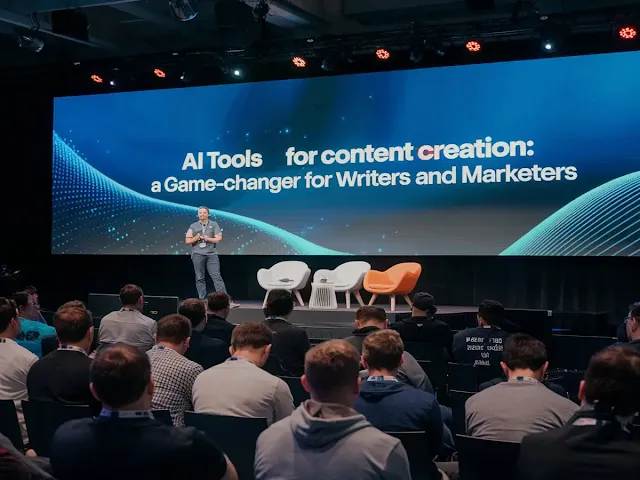AI Tools for Content Creation: A Game-Changer for Writers and Marketers
 | |
|
In the ever-evolving digital landscape, where content reigns supreme, staying ahead of the curve is more challenging than ever. Writers and marketers are constantly pressured to produce high-quality content that resonates with their audiences. Enter artificial intelligence (AI) tools—a transformative force reshaping how we create, manage, and optimize content. These tools are not just novelties; they are game-changers that promise to revolutionize the content creation process.
How AI Tools Are Empowering Writers and Marketers
The Role of AI in Content Creation
AI tools leverage sophisticated algorithms and machine learning models to analyze, generate, and refine content. From crafting engaging blog posts to optimizing SEO strategies, AI assists content creators in delivering compelling messages to their audiences. What sets these tools apart is their ability to combine speed and accuracy, freeing up time for writers and marketers to focus on strategy and creativity.
How AI Tools are Changing the Game
1- Enhanced Content Generation AI-powered writing tools such as ChatGPT, Jasper, and Copy.ai can generate human-like text in seconds. They enable writers to overcome creative blocks by providing drafts, headlines, and even full articles. This capability is handy for marketers who must produce large volumes of campaign content.
These tools analyze existing data and use predictive models to ensure the content aligns with audience preferences. They can adapt to different tones, styles, and formats, making them invaluable for diverse industries.
Search engine optimization (SEO) is a cornerstone of digital marketing, and AI tools are making it more accessible. Platforms like Surfer SEO and Clearscope use AI to identify keywords, analyze competitor content, and recommend structure adjustments to improve rankings.
By automating keyword research and providing real-time feedback, these tools empower marketers to create content that performs well on search engines without the need for extensive technical knowledge.
In today’s era of personalization, generic content no longer cuts it. AI tools enable creators to tailor content to specific audiences by analyzing user behavior, preferences, and demographics. Tools like Persado and OneSpot specialize in crafting messages that resonate deeply with individual segments, enhancing engagement and conversion rates.
4- Streamlined Editing and Proofreading Polishing content is as crucial as creating it. AI tools like Grammarly and ProWritingAid help writers refine their work by offering suggestions on grammar, style, and tone. These tools also analyze readability and ensure that content aligns with the intended audience's comprehension level.
For marketers, these tools act as a second pair of eyes, ensuring that campaigns maintain a professional and polished image.
AI tools do more than just write—they inspire. Platforms like BuzzSumo and AnswerThePublic analyze trending topics and audience interests to provide content ideas. They enable writers and marketers to identify gaps in the market and create content that addresses unmet needs.
By integrating AI into their brainstorming process, teams can generate fresh and innovative concepts that keep their content strategy dynamic.
Benefits of AI Tools for Writers and Marketers
The adoption of AI tools offers several advantages:- Time Efficiency: AI significantly reduces the time spent on mundane tasks like research and editing.
- Cost-Effectiveness: With AI handling multiple aspects of content creation, teams can achieve more with fewer resources.
- Consistency: AI ensures that content remains consistent in tone and quality, which is crucial for brand identity.
- Scalability: Whether you're a solo writer or part of a marketing team, AI tools enable you to scale your efforts without compromising quality.
Challenges and Limitations
Despite their potential, AI tools are not without challenges. They lack the human touch and creativity that make content truly unique. Over-reliance on AI can lead to generic content that fails to stand out. Additionally, these tools require human oversight to ensure factual accuracy and cultural sensitivity.
Writers and marketers must view AI as a collaborative partner rather than a replacement. The best results come from blending AI’s efficiency with human creativity and critical thinking.
Future Trends in AI-Powered Content Creation
The future of AI in content creation is bright. As technology advances, we can expect:- Greater Accuracy: AI tools will continue to improve their understanding of context and nuance, reducing errors.
- Multimedia Integration: Tools will expand beyond text, offering capabilities for video, audio, and interactive content creation.
- Real-Time Feedback: AI will provide instant insights during the creation process, enabling immediate adjustments.
- Ethical Guidelines: As AI adoption grows, there will be a stronger focus on ethical content creation, ensuring transparency and authenticity.
Conclusion
AI tools for content creation are transforming the way writers and marketers work. They offer unprecedented efficiency, personalization, and scalability, making them indispensable in today’s fast-paced digital world. However, the human element remains irreplaceable. Writers and marketers who embrace AI as a collaborative tool rather than a crutch will unlock its full potential.
As we look to the future, the synergy between human creativity and AI technology promises to redefine the art of content creation, ensuring that stories, messages, and campaigns continue to captivate audiences in meaningful ways.

